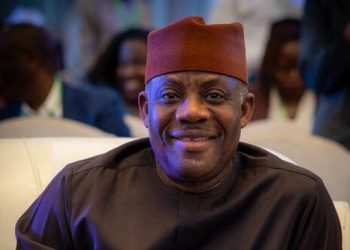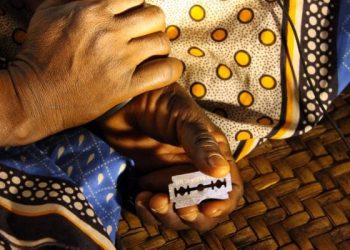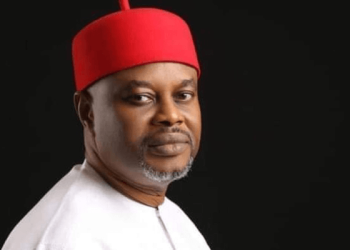A new dawn broke in Nigeria on Tuesday when Muhammadu Buhari, a former military ruler, emerged as president-elect, defeating the incumbent, Goodluck Jonathan, and dislodging the ruling Peoples Democratic Party from power for the first time since the country returned to civilian rule in 1999. Buhari, who has established his credentials as a disciplined leader, had the day at his fourth shot at the presidency.
But the victory properly belongs to the Nigerian people, more than 37 million of whom braved intimidating security presence and trooped out to vote for a president, senators and members of the Federal House of Representatives of their choices. Nigerians deserve credit for their courage, and the security agencies for their impartiality in keeping order.
This is a moment that should gladden all democrats. Most Nigerians are rightly rejoicing over what they see as a hugely important moment in their country’s troubled 55 years of independence. It was a hard-won victory, but turbulence still lies ahead as the President-elect and other elected officials will only be officially inaugurated on May 29, when the fourth transfer of power in the Fourth Republic will be consummated. Eternal vigilance, they say, is the price of liberty, and the electorate, civil society groups and the international community should remain on red alert in the face of unprecedented threats and plots that have fomented a high level of tension in this election season. The international community should mount the necessary pressure to ensure that the results of the presidential election are not overturned at the last minute, just as we witnessed in 1993. We should not forget that the election succeeded in spite of the Jonathan presidency, which plotted endlessly to subvert the polls.
Jonathan particularly still faces staggering challenges. Previous elections had quickly descended into ethnic bloodletting. By all means, these election results should not provoke needless violence. Nigerians must resist the temptation to shoehorn a straightforward electoral contest into a binary North versus South template. Jonathan should ensure that no group or individual taps into an atavistic vein of ethnic tension.We are gladdened that Jonathan has reportedly called to congratulate the victor.
Buhari, of the All Progressives Congress, won by more than 14.9 million votes to Jonathan’s 12.8 million votes. This was a dramatic landmark upset, being the first time in Nigeria that a sitting president would be defeated. It signals the maturity of our hitherto fledgling democracy and sets a new pattern for political alignments. It proves to the doubters that the choice of the electorate can count in Nigeria.
Buhari swept his North-East and North-West strongholds by landslides, while defeating Jonathan in the North-Central states of Benue, Kogi, Niger and Kwara, traditional strongholds of the ruling PDP. He also scored a quarter of the votes in the two other states in the zone. But he performed poorly in the South-South and South-East regions, where he failed to muster 10 per cent of the votes cast except in Edo State, which the APC has ruled since 2008.
Apart from sweeping the five South-East states and his South-South zone home base by 90 per cent, Jonathan performed well in the South-West, where he almost upset the APC’s 16-year dominance in Lagos, took Ekiti and scored significant votes in Ondo, Ogun and Osun states. Some results however had serious question marks. These dubious results must not be allowed to go unchallenged. We urge all stakeholders to join hands to ensure a successful transition and graciousness in victory by all those who triumphed.
Our democratic system has been buffeted and we need to learn the right lessons as we prepare for the April 11 state governorship and legislative elections. In this, we should leverage last Saturday’s polling. We raise a cheer to the hard-pressed voters, who, in spite of all the intrigues and challenges, have kept faith with democracy. Our security agencies were also observed to have done well. Unlike the inglorious past, most of them turned out smartly in new or clean uniforms and conducted themselves well in many cases. The Independent National Electoral Commission deserves commendation as well for its conduct. Yes, there were hitches, including glitches in new technology and logistical problems. But, largely, this was a marked improvement on past elections where logistical, ethical and administrative issues dented the integrity of polling and made Nigeria a laughing stock around the world. Indeed, the use of the Permanent Voter Card and Card Reader Machine was our saving grace.
It appears that Nigerians are waking up to the reality that democracy is about the people and cannot thrive when majority of the electorate stay aloof. The middle class, especially, has dangerously left elections to politicians and the less enlightened segment of the populace. This has resulted in a deplorable standard in the quality of public officials and a 70 per cent poverty level despite bumper oil revenues for over a decade and placed the country in the lower rungs of the human development indicators.
It is the middle class that drives development in many parts of the world and ours should not be different. Though many decent people shun the political space because of its seizure by unscrupulous operators and godfathers, the election of a principled man of integrity like Buhari should encourage millions of Nigerians at home and in the diaspora to take active interest in how their country is run.
We have surrendered our destiny for too long to our Third Eleven at all levels of governance to our great loss. With Africa’s largest economy and a Gross Domestic Product at a rebased $510 billion, projected by the International Monetary Fund to become one of the world’s top 20 economies by 2020, the country requires its best at the helm at local, state and federal levels.
We strongly suggest an improvement on Saturday’s spectacle where, in many places, voters turned out, waited patiently in the sun or rain, conducted themselves with decorum and still waited until results were announced, in some places, late into the night or the next day. Voters should also develop a culture of peaceful protest that was in evidence in Rivers, Delta, Edo, Oyo, Osun and Benue states where electors complained of being disenfranchised.
But the polls have not been without villains. Unscrupulous politicians were in their usual nefarious element. This has gone down as the most expensive election in Africa, with billions of naira, mostly, we suspect, of stolen public funds, sunk into the campaigns. Bribery was openly on display, as were violence, ballot snatching and sinister plots. While serious charges of vote-rigging in some states must be investigated, it appears that most Nigerians are willing to accept the election results. INEC should tidy up and ensure that its joker, the card reader, works flawlessly on April 11.
Nigeria has seen false dawns before, above all after the last general election in 2011, when voters swept Jonathan into office on a wave of sympathy following the sudden death of President Umaru Yar’Adua. But Buhari’svictory probably is the most consequential election in Nigeria’s history. It is vital that the President-elect capitalises on the euphoric mood to push for change.We hope he will set an entirely new course for the country and a new beginning for our troubled republic.













































